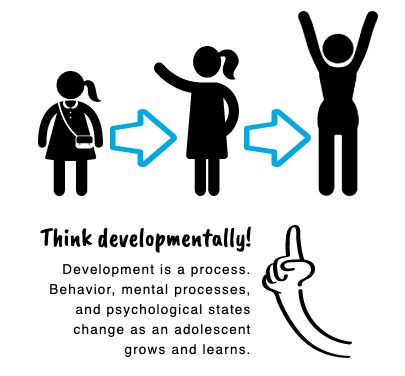Resource Library

Adolescence: A Critical Window to Influence Youth Mental Health
October 3, 2022 | Filed in: Fact Sheet | BriefResearch into cognitive and social development tells us that adolescence is a critical period to influence the mental health of young people. We can help young people not just survive but thrive by exposing them to conditions and experiences that support their developmental needs during these years.

How Developmental Science Can Help Address Anti-Black Racism During Adolescence
October 2, 2020 | Filed in: Brief
How Developmental Science Can Help Us Address Inequities During Adolescence
September 15, 2020 | Filed in: BriefAdolescence—beginning at the onset of puberty, around 10 years old, and ending in our mid-20s—is a key window of opportunity for shaping positive trajectories that can last a lifetime. During adolescence, our developing brains are learning and adapting in ways that naturally take advantage of supportive relationships, environments, and experiences for growth and development. Unfortunately, the…
The Science Behind Adolescent Risk Taking and Exploration
December 20, 2019 | Filed in: BriefAdolescents are generally more likely to lean into risk and uncertainty than children or adults—and that’s a good thing.

Thinking “Developmentally”
August 29, 2019 | Filed in: BriefIt’s important to keep a developmental perspective when talking about adolescence. Here’s a brief summary of what it means to think developmentally. At the UCLA Center for the Developing Adolescent, we believe it is important to think developmentally about adolescence. Thinking developmentally means recognizing that adolescence is a time of unique capacities, motivations, and contexts,…
